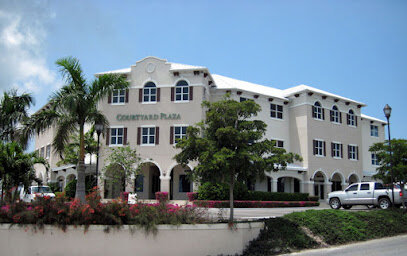Best Project Finance Lawyers in Turks and Caicos Islands
Share your needs with us, get contacted by law firms.
Free. Takes 2 min.
Or refine your search by selecting a city:
List of the best lawyers in Turks and Caicos Islands
About Project Finance Law in Turks and Caicos Islands
Project finance involves raising funds for large infrastructure and development projects where the debt and equity used to finance the project are paid back from the cash flow generated by the project itself. In the Turks and Caicos Islands, project finance is particularly important due to the continuing growth in tourism, real estate, energy, and infrastructure sectors. The jurisdiction is known for its stable political environment, attractive investment climate, and English-based common law system, which provides a solid legal framework for structuring complex financial transactions.
Project finance in the Turks and Caicos Islands often involves multiple parties, including private investors, lenders, banks, and occasionally government agencies, all cooperating to bring significant projects to completion. Special purpose vehicles (SPVs) are commonly used to isolate the project's assets and risks, ensuring that financing is secured against the project's future revenues.
Why You May Need a Lawyer
Engaging a lawyer with expertise in project finance is essential to navigate the complexities associated with financing large projects. Here are some situations where legal guidance is invaluable:
- Setting up an SPV to ring-fence project assets and liabilities
- Drafting and negotiating loan agreements, security documents, and direct agreements
- Ensuring compliance with local licensing, permitting, and regulatory requirements
- Structuring multi-layered financing involving both local and international lenders
- Handling cross-border transactions and foreign investment rules
- Resolving disputes among project parties and handling defaults
- Advising on tax-efficient structures and incentive programs
- Facilitating government relationships and understanding concessional arrangements
Attempting to navigate these areas without qualified legal assistance can result in costly mistakes, project delays, or regulatory non-compliance.
Local Laws Overview
The legal landscape in the Turks and Caicos Islands is built upon English common law, supplemented by local statutes and regulations. Key aspects of local law relevant to project finance include:
- Companies Law - Governs the incorporation and operation of companies, including SPVs formed for project finance.
- Security Interests Legislation - Outlines methods for granting and registering security over assets.
- Foreign Investment Regulations - Specifies requirements for non-resident investors, including approvals and restrictions.
- Taxation - Turks and Caicos Islands impose no direct taxes on income, capital gains, or corporate profits, making the jurisdiction attractive for project finance structures.
- Real Estate Law - Regulates land acquisition, leasing, and mortgaging, which are crucial for property-based projects.
- Regulatory Approvals and Licensing - Certain projects, especially in infrastructure and energy, require various local permits and adherence to environmental regulations.
- Dispute Resolution - Commercial disputes are resolved through local courts or, if agreed by parties, via international arbitration mechanisms.
Understanding and adhering to these laws is essential to the success and legal soundness of any project finance transaction in the Turks and Caicos Islands.
Frequently Asked Questions
What is project finance and how does it work in Turks and Caicos Islands?
Project finance is a method of funding large-scale projects where repayment is made using the project's revenues. In Turks and Caicos Islands, this often involves forming an SPV and securing loans based on project viability and cash flow.
What types of projects are typically financed using project finance?
Common project finance deals involve tourism infrastructure, resort developments, energy projects, real estate, water supply, and transportation facilities.
Are there specific regulations for foreign investors in project finance deals?
Yes, foreign investors may need governmental approvals depending on the sector and project size. There are also rules governing land ownership and business operation by non-residents.
How are interests and security over project assets registered?
Security interests such as mortgages, debentures, and charges over assets must be registered through the Registrar of Companies or the Land Registry, depending on the asset type.
What are the common legal structures used in project finance transactions?
Projects typically use Special Purpose Vehicles (SPVs) for risk isolation. Partnerships and joint ventures are also possible depending on the investor mix.
Are there taxes on profits from project finance projects?
Turks and Caicos Islands do not impose corporate income tax, capital gains tax, or inheritance tax, though there may be stamp duties and licensing fees depending on the transaction.
What are the typical steps involved in setting up a project finance structure?
Key steps include feasibility studies, forming an SPV, negotiating financing and security documents, obtaining regulatory approvals, and financial close.
How do lenders enforce security if there is a default?
Lenders can enforce their security by following the enforcement procedures under local law, such as taking possession of secured assets or appointing a receiver. Legal processes ensure transparency and protection of creditor rights.
Is arbitration available for resolving project finance disputes?
Yes, parties can agree to resolve disputes via arbitration, and Turks and Caicos Islands courts recognize and enforce arbitral awards under international conventions.
Why should I hire a local lawyer for project finance?
A local lawyer ensures compliance with all relevant laws, facilitates interactions with government authorities, and can efficiently navigate the local regulatory and judicial environment, reducing risks for your project.
Additional Resources
For further assistance and information on project finance in Turks and Caicos Islands, consider the following resources and organizations:
- Turks and Caicos Islands Financial Services Commission - oversees regulatory compliance and company filings
- Chamber of Commerce Turks and Caicos Islands - provides networking and business guidance
- Department of Planning - handles permits and approvals for construction and infrastructure projects
- Land Registry - responsible for documentation and registration of land interests
- Local law firms specializing in banking, finance, and commercial law
These organizations can provide regulatory guidelines, application forms, and guidance on best practices for engaging in project finance.
Next Steps
If you are considering or involved in a project finance transaction in the Turks and Caicos Islands, the following steps can help ensure a smooth process:
- Consult with a qualified local lawyer experienced in project finance as early as possible
- Prepare clear documentation about your project, including feasibility studies and business plans
- Identify all necessary approvals and permits required under local law
- Engage professional advisers, such as accountants and technical consultants, in addition to legal counsel
- Understand your obligations, rights, and the contractual structure of your financing deals
- Stay informed of any regulatory updates or changes that may affect your project
Taking these steps with the support of legal specialists will help safeguard your investments, ensure compliance, and enhance the likelihood of your project's success in the Turks and Caicos Islands.
Lawzana helps you find the best lawyers and law firms in Turks and Caicos Islands through a curated and pre-screened list of qualified legal professionals. Our platform offers rankings and detailed profiles of attorneys and law firms, allowing you to compare based on practice areas, including Project Finance, experience, and client feedback.
Each profile includes a description of the firm's areas of practice, client reviews, team members and partners, year of establishment, spoken languages, office locations, contact information, social media presence, and any published articles or resources. Most firms on our platform speak English and are experienced in both local and international legal matters.
Get a quote from top-rated law firms in Turks and Caicos Islands — quickly, securely, and without unnecessary hassle.
Disclaimer:
The information provided on this page is for general informational purposes only and does not constitute legal advice. While we strive to ensure the accuracy and relevance of the content, legal information may change over time, and interpretations of the law can vary. You should always consult with a qualified legal professional for advice specific to your situation.
We disclaim all liability for actions taken or not taken based on the content of this page. If you believe any information is incorrect or outdated, please contact us, and we will review and update it where appropriate.
Browse project finance law firms by city in Turks and Caicos Islands
Refine your search by selecting a city.














